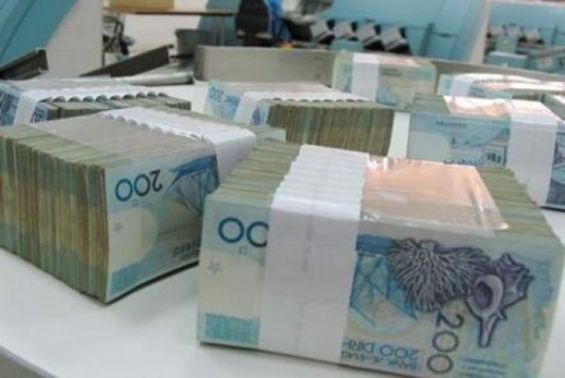Morocco is in the middle of the process of adopting a more flexible currency exchange rate regime. The decision that has made several headlines these couple of months has not yet been put into practice. And everybody is awaiting when, and how the Moroccan central bank would kickstart the project. In an article published today by Bloomberg, an Iranian economic daily newspaper, Zahar Benmoussa, managing director of Grillages Marocains, a Casablanca-based firm that imports steel wires, explained how his concerns about the dirham’s liberalization.
«In five decades of importing steel wires, Zahar Benmoussa’s company never worried about currency risks—until Morocco announced plans to float the dirham».
Now with the government announcing the new exchange rate policy, things have taken a different path for Benmoussa. «For the first time in our history, we started to hedge», he stated refering to the act of reducing the risk of adverse price movements on an asset. Apparently, it was not only Benmoussa who thought this way, according to Bloomberg «fears of a weaker dirham triggered a rush for dollars and Euros, causing a $3 billion drop in its reserves in just three months this year».
The exchange rate regime will take place at the appropriate time
On June, the Moroccan government was set to announce the date of the dirham’s liberalization; however, the procedure was delayed. Speaking to Charles Roberston, a global chief economist at London-based firm Renaissance capital, he announced that delaying the exchange rate regime Morocco «risks wasting a ‘perfect time’ in terms of its economic health to loosen controls».
After a research trip here in Morocco, Roberston said that «it’s fear of the unknown and pessimism on the corporates’ part». Moreover, the fear from having a similar worst case scenario to the one of Egypt is hunting the minds of company owners and banks. According to the London-based economist, the Egyptian government removed most controls in November to end a foreign-currency shortage.
However, it is still unknown when the delay will end. Abdellatif Jouahri, the central bank governor has announced previously that the new regime highly suggested by the International Monetary Fund will be introduced in a gradual way that would not trigger fluctuation or depreciation. On July the 1 st, Head of Government Saadeddine El Othmani announced during an interview that the band would fluctuate within a range of 5% as compared to 0.6% today. A percentage that wasn’t confirmed by Bank al-Maghrib.
Mustapha El Khalfi, the government spokesman on the other hand said on July the 6 th that «the move to a more flexible exchange rate regime, not a float, is still in the cards but the rollout will take place at the appropriate time».
Better than Egypt
However, analysts agree that the country’s economy is meant to perform better than Egypt and other neighbouring countries. According to Bloomberg, «with growth expected to average 4.1 percent in 2017 and 2018, it is set to outperform most Arab economies including Egypt and Tunisia, as well as Saudi Arabia and the United Arab Emirates.»
«Its budget deficit is forecast to drop to 3.1 percent this year from 4.2 percent in 2016, according to economist estimates compiled by Bloomberg. Inflation is under 2 percent.»
Badr Fassi-Fihri, a currency trader for Banque Centrale Populaire (BCP) told the same source that «it’s not at all cut-and-dried whether the dirham will appreciate or depreciate when more flexibility is allowed».
Unlike Egypt, Morocco is not facing a currency crisis and the delay is basically linked to that.
Waiting for the «appropriate time», the new currency exchange rate regime is a major step that would open a new chapter in the economy of the country.




 chargement...
chargement...













